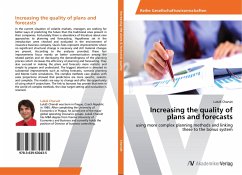What leaders think they are good at (self-efficacy) influences their decisions about allocating resources within their small organizations. Data analyzed from 577 U.S.-based small business leaders indicate that knowing a business owner s perceived area of self-efficacy improves the ability to predict that owner s allocation of resources. Results of this study can be applied to developing a decision-making model with significant practical application. This model might be leveraged for such key business decisions as hiring, budgeting, staffing, controlling general and administrative costs, and outsourcing decisions. The key is for leaders in small companies to learn to rely on others with proven expertise and hands-on experience in business areas outside of their particular sphere of self-perceived expertise. They would benefit from developing a balanced organization that includes a cross-section of business infrastructure knowledge within their management team. Small business entrepreneurs might also work in trust-based partnership with outside experts to ensure that dollars and staff are allocated in infrastructure areas most beneficial to organizational success.
Bitte wählen Sie Ihr Anliegen aus.
Rechnungen
Retourenschein anfordern
Bestellstatus
Storno








